
A. J. Raffles is a British fictional character – a cricketer and gentleman thief – created by E. W. Hornung. Between 1898 and 1909, Hornung wrote a series of 26 short stories, two plays, and a novel about Raffles and his fictional chronicler, Harry "Bunny" Manders.
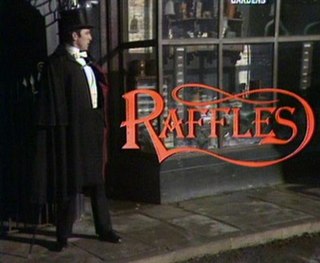
Raffles is a 1977 television series adapted from the A. J. Raffles stories by E. W. Hornung. The stories were adapted by Philip Mackie.
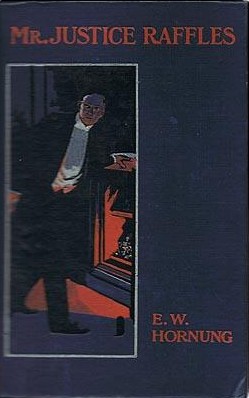
Mr. Justice Raffles is a 1909 novel written by E.W. Hornung. It featured his popular character A. J. Raffles a well-known cricketer and gentleman thief. It was the fourth and last in his four Raffles books which had begun with The Amateur Cracksman in 1899. The novel was published in the UK by Smith, Elder & Co., London, and in the US by Scribner's, New York.
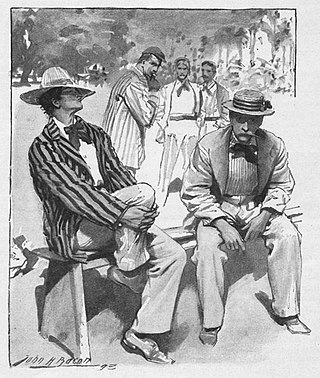
Harry Manders is a fictional character in the popular series of Raffles stories by E. W. Hornung. He is the companion of A. J. Raffles, a cricketer and gentleman thief, who makes a living robbing the rich in late Victorian British High Society.

"The Gift of the Emperor" is a short story by E. W. Hornung, and features the gentleman thief A. J. Raffles, and his companion and biographer, Bunny Manders. The story was first published in October 1898 by Cassell's Magazine. The story was also included as the eight and last story in the collection The Amateur Cracksman, published by Methuen & Co. Ltd in London, and Charles Scribner's Sons in New York, both in 1899.

The Black Mask is a 1901 short story collection by E. W. Hornung. It was published in the UK by Grant Richards, London, and in the US by Scribner's, New York under the title Raffles: Further Adventures of the Amateur Cracksman. It is the second collection of stories in Hornung's series concerning A. J. Raffles, a gentleman thief in late Victorian London.

"A Trap to Catch a Cracksman" is a short story by E. W. Hornung, and features the gentleman thief A. J. Raffles, and his companion and biographer, Bunny Manders. The story was published in July 1905 by Pall Mall Magazine in London. The story was also included as the seventh story in the collection A Thief in the Night, published by Chatto & Windus in London, and Charles Scribner's Sons in New York, both in 1905.
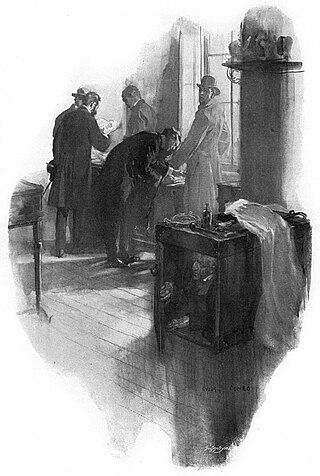
"The Raffles Relics" is a short story by E. W. Hornung, and features the gentleman thief A. J. Raffles, and his companion and biographer, Bunny Manders. The story was published in September 1905 by Pall Mall Magazine in London. The story was also included as the eighth story in the collection A Thief in the Night, published by Chatto & Windus in London, and Charles Scribner's Sons in New York, both in 1905.

"The Criminologists' Club" is a short story by E. W. Hornung, and features the gentleman thief A. J. Raffles, and his companion and biographer, Bunny Manders. The story was published in March 1905 by Collier's Weekly in New York, and in April 1905 by Pall Mall Magazine in London. It was also included as the fourth story in the collection A Thief in the Night, published by Chatto & Windus in London, and Charles Scribner's Sons in New York, both in 1905.
The Return of A. J. Raffles, first produced and published in 1975, is an Edwardian comedy play in three acts, written by Graham Greene and based somewhat loosely on E. W. Hornung's characters in The Amateur Cracksman. Set in the late summer of the year 1900, the story revolves around the infamous burglar and cricketer, A. J. Raffles—presumed dead in the Boer War—who returns to Albany where, with his friends Bunny and Lord Alfred Douglas, he plots to rob the Marquess of Queensberry, partly for the money and partly for revenge against the Marquess for his treatment of their friend Oscar Wilde. The robbery takes place at the Marquess' house in Hertfordshire, where Raffles and Bunny are interrupted by the Prince of Wales and a Scotland Yard detective, who discover the Prince's personal letters have also been stolen.

Arthur J. Raffles is a fictional character created in 1898 by E. W. Hornung, brother-in-law of Sir Arthur Conan Doyle, the creator of Sherlock Holmes. Raffles is, in many ways, an inversion of Holmes – he is a "gentleman thief", living at the Albany, a prestigious address in London, playing cricket as a gentleman for the Gentlemen of England and supporting himself by carrying out ingenious burglaries. He is called the "Amateur Cracksman" and often, at first, differentiates between him and the "professors" – professional criminals from the lower classes.

"The Ides of March" is a short story by E. W. Hornung, and the first appearance of the gentleman thief A. J. Raffles, and his companion and biographer, Bunny Manders. The story was first published in June 1898 by Cassell's Magazine. The story was also included in the collection The Amateur Cracksman, published by Methuen & Co. Ltd in London, and Charles Scribner's Sons in New York, both in 1899.

"A Costume Piece" is a short story by E. W. Hornung, and features the gentleman thief A. J. Raffles, and his companion and biographer, Bunny Manders. The story was first published in July 1898 by Cassell's Magazine. The story was also included in the collection The Amateur Cracksman, published by Methuen & Co. Ltd in London, and Charles Scribner's Sons in New York, both in 1899.
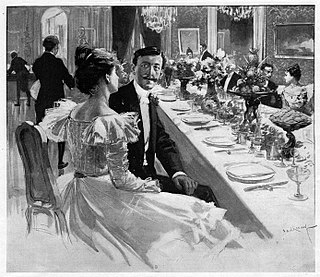
"Gentlemen and Players" is a short story by E. W. Hornung, and features the gentleman thief A. J. Raffles, and his companion and biographer, Bunny Manders. The story was first published in August 1898 by Cassell's Magazine. The story was also included in the collection The Amateur Cracksman, published by Methuen & Co. Ltd in London, and Charles Scribner's Sons in New York, both in 1899.

"The Return Match" is a short story by E. W. Hornung, and features the gentleman thief A. J. Raffles, and his companion and biographer, Bunny Manders. The story was first published in October 1898 by Cassell's Magazine. The story was also included as the seventh story in the collection The Amateur Cracksman, published by Methuen & Co. Ltd in London, and Charles Scribner's Sons in New York, both in 1899.

"No Sinecure" is a short story by E. W. Hornung, and features the gentleman thief A. J. Raffles, and his companion and biographer, Bunny Manders. The story was first published in Scribner's Magazine in January 1901. The story was also included as the first story in the collection The Black Mask, published by Grant Richards in London, and Charles Scribner's Sons in New York, both in 1901.

"The Last Laugh" is a short story by E. W. Hornung. It features the gentleman thief A. J. Raffles, and his companion and biographer, Bunny Manders. The story was first published in Scribner's Magazine in April 1901. The story was also included as the fourth story in the collection The Black Mask, published by Grant Richards in London, and Charles Scribner's Sons in New York, both in 1901.

"To Catch a Thief" is a short story by E. W. Hornung, and features the gentleman thief A. J. Raffles, and his companion and biographer, Bunny Manders. The story was first published in Scribner's Magazine in May 1901. The story was also included as the fifth story in the collection The Black Mask, published by Grant Richards in London, and Charles Scribner's Sons in New York, both in 1901.

"An Old Flame" is a short story by E. W. Hornung, and features the gentleman thief A. J. Raffles, and his companion and biographer, Bunny Manders. The story was first published in Scribner's Magazine in June 1901. The story was also included as the sixth story in the collection The Black Mask, published by Grant Richards in London, and Charles Scribner's Sons in New York, both in 1901.

Raffles is a British radio programme including eighteen episodes that first aired on BBC Radio 4 from 1985 to 1992, and an additional radio play that aired in 1993 on the BBC World Service. The series was directed by Gordon House and was based on the A. J. Raffles stories by author E. W. Hornung.



















